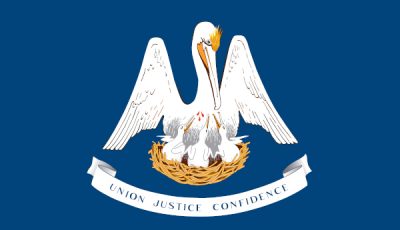“Is Porn Bad for You?” A Close Look at the Eternal Question
 If you’ve been on the internet for more than a few minutes, you’ve probably found some porn. And if you’ve been around for more than a few hours, you’ve likely run across a headline asserting that porn is addictive, destructive, and all-around “bad for you.” But, if you’ve been around for more than a few days, you’ve likely heard a voice of dissent on that manner. In fact, “Is porn good or bad for you?” is one of the internet’s most evergreen debates, and one that’s filtered down to the masses from the hallowed halls of scientific research. In a recent article for the BBC’s Science Focus magazine, Zoe Cormier talked to some of the leading researchers and presented a refreshing concept: Porn can be bad for some people, but it doesn’t seem to be bad for everyone.
If you’ve been on the internet for more than a few minutes, you’ve probably found some porn. And if you’ve been around for more than a few hours, you’ve likely run across a headline asserting that porn is addictive, destructive, and all-around “bad for you.” But, if you’ve been around for more than a few days, you’ve likely heard a voice of dissent on that manner. In fact, “Is porn good or bad for you?” is one of the internet’s most evergreen debates, and one that’s filtered down to the masses from the hallowed halls of scientific research. In a recent article for the BBC’s Science Focus magazine, Zoe Cormier talked to some of the leading researchers and presented a refreshing concept: Porn can be bad for some people, but it doesn’t seem to be bad for everyone.
A favorite topic when it comes to adult entertainment’s potential harms is, of course, addiction. With anecdotal evidence piling up and study after study feeding into headlines that use “the language of addiction, describing ‘cravings’, ‘tolerance’, ‘need for more hits’ and ‘withdrawal,’” wrote Cormier. It’s difficult not to walk away from the news assuming that porn is outright addictive. And, Cormier acknowledged, “Many studies have hinted at measurable differences in the brains of people who watch a lot of pornography, suggesting addictive and possibly harmful impacts.”
But it’s not nearly that simple. Dr. Valerie Voon at the University of Cambridge’s Department of Psychiatry is a leading researcher on the subject. Her research has found that people who exhibit “compulsive sexual behavior” show different patterns of brain activity when viewing pornographic images—patterns similar to those that occur during drug abuse. But even Dr. Voon told Cormier, “What we do know with porn is that there are some patterns that are consistent with an addiction—but some that are not. We need much larger epidemiological studies to know for sure.”
Enter Dr. Nicole Pruase, a former UCLA neuroscientist who now heads the sexual health start-up Liberos. “Pornography ‘addiction’ does not look like other addictions—full stop,” she told Cormier. Prause pointed to several measurable differences, but said that the most important is that, “With addiction to drugs and gambling, addicts experience ‘sensitisation’: they become more sensitive to the cues of their addiction, and [Prause’s] research indicates porn decreases sensitivity” [emphasis mine].
Instead, wrote Cormier, “There is good evidence that excessive consumption of porn can lead to ‘habituation’: the desire for novel stimuli.” Voon clarified: “Although I wouldn’t yet call it an addiction, it certainly is a compulsive sexual behavior.”
But behavior and addiction aren’t the same thing, and they’re both deeply personal issues. Just like the tendency toward sexual aggression and violence, wrote Cormier. UCLA’s Prof. Neil Malamuth’s 2009 meta-analysis of hundreds of papers from the 1980s through 2008 concluded that there was a “fairly consistent” link between “high rates of porn viewing with violent ideas and behavior. But”—and this is a big but from Cormier—”here’s the caveat: not all men respond to porn in the same way.
“For most men, consuming porn will not cause them to view women differently. But in those who already are predisposed to hold sexist views or to behave in an aggressive fashion, porn can exacerbate pre-existing and dangerous propensities.” As Malamuth put it, “It depends on the cultural context—and the individual.”
Prause told Cormier that research does show that porn can, indeed, reinforce “rape myths” about women owing men sex or wanting to be coerced. But that only holds true for men who already believe those myths.
In fact, asserted Cormier, “Recent research has gone against studies from the 1980s and 1990s in saying that increased access to pornography can often lead to decreases in rates of sexual assault” [emphasis mine] across large populations. So while some men might find porn a source of fuel for violent sexual behavior, they appear to be in the minority.
The truth, as Cormier seems to find it, is that there’s no clear-cut answer to the eternal question: “Is porn bad for you?” The truth may be slightly different for every individual. But the danger may lie in the biases that researchers take into their studies. Dr. Taylor Kohut, a psychologist at the University of Western Ontario, told Cormier, “Researchers often get their ideas about what should be studied by what they see in the news.”
Kohut’s research has shown that headlines tend to reflect alarmist notions in order to sell papers or get clicks. And that can be a bad thing for science and for pornography. “There is a relationship between the two, and it is reciprocal and symbiotic,” said Kohut. “A noticeable subset of researchers come at these issues with a focus on harm in their minds. They try to establish ways to confirm that porn is causing whatever harm they already believe exists,” he continued.
In other words, the next time you see a headline about porn’s deleterious and drug-like effects on the brain—try to remember how many other headlines you’ve seen on that same topic. Then remember that the researchers being quoted likely saw the same thing.
Person using microscope photo by Gustavo Fring from Pexels













